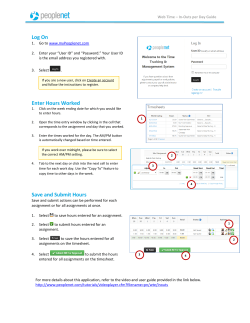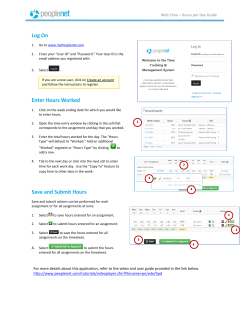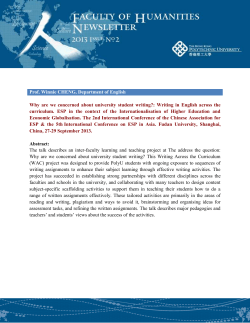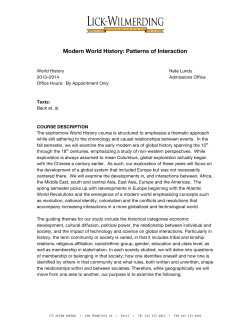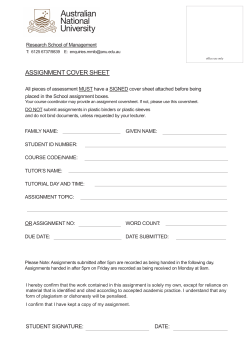
Syllabus AP Language and Composition 2014-2015
AP English Language and Composition Syllabus Ms. Vergnani 1-212 –2014-2015 School Year vergnanis@k12.fl.us Course and Curriculum Overview: Students in this college-level course will develop a deeper knowledge of language, rhetoric, public policy, contemporary issues, philosophical traditions and culture through writing various forms of essays, including persuasion, argumentation, and exposition. Through the close reading of challenging texts, student will discover how various writers employ methods of persuasion through a variety of rhetorical and literary devices to accomplish their purposes. This, in turn, will aid students with honing their skills in passage analysis and developing their own essays. Analytical, argumentative and synthesis essays based on AP course requirements will form the foundation of the writing component of the course, but students will also employ rhetorical analysis in oral and written form in response to selected readings both fiction and non-fiction throughout the course. In all reading and writing exercises, students will focus on each writer’s rhetorical style, intended audience, and purpose to help develop their individual strengths as writers. Students will often work in collaboration, using peer editing as well as instructor feedback to plan, write, edit, and revise their work, with these goals in mind: 1. Specific, thought-provoking theses, supported by cogent, logical evidence. 2. Effective use of rhetorical tools, tone, word choice, and voice. 3. The employment of a variety of styles regarding phrasing and sentence development to pique reader interest. 4. Clarity and readability based on smooth transitions, parallel structures, and the logical progression of ideas. 5. Precise description and verb choices that activate the reader’s senses. 6. A rich vocabulary that yields precise meaning and reveals an appreciation and understanding of the subtleties and nuances of language. 7. Sound mechanics, including spelling, grammar, punctuation, usage and MLA formatting. Course reading includes assigned books(summer reading), student-selected essays, two textbooks, and test-preparation workbooks. The texts contain speeches and essays from the fields of journalism, science, philosophy and public policy, as well as fiction and poetry. Assigned readings have been selected to deepen students’ background knowledge in a variety of areas, as well as build cultural literacy and vocabulary. Students will also be expected to develop media literacy, particularly the ability to analyze and evaluate the content of graphic images, photographs, , advertising, song lyrics, documentary film, and fine art. Using the course texts along with selections from other sources--written, visual, and audio-- students will learn to identify theme and evaluate authors’ perspectives on them through class discussions and presentations, as well as through written exposition. Thought there is no pre-requisite for taking AP Language and Composition students are expected to bring a high level of commitment to the course and a willingness to read extensively outside the classroom. They should be writing at grade level, and this includes grammar, mechanics, usage, and vocabulary. Additionally, students are expected to be mentally and physically prepared for each class. This includes having all the necessary materials and assignments for the day, as well having completed their out of class assignments to the best of their ability. Further, students are expected to collaborate in groups and participate in class discussions with verve and enthusiasm and a spirit of cooperation. Course Materials Following is a list of the main texts that will be used in this course. However, selections from several other texts will be employed throughout the course. (For the required summer reading list for summer 2014 and the accompanying assignment, please refer to the East Ridge High School web page.) 1. The Language of Composition – Shea, Scanlon and Aufses. (This is the only text that you will check out for the year.) 2. everything’s an argument – Lunsford, Ruszkiewicz and Walters 3. AP English Language & Composition Examination – Sixth Edition Assessments Course grades will be determined by a combination of projects, exams, presentations, research and daily reading/writing assignments. Grades are based on a point system with exams, projects, quizzes and presentations worth 100-200 points, depending on the assignment. Also, exams, tests, quizzes, and major projects/presentations are worth 40 percent of your grade, homework is worth 35 percent, and classwork is worth 25 percent of your grade. Essays will be graded holistically, based on a grading rubric of which all students will receive a copy. Curriculum Details The course will open with pre-testing exercises to determine student skill levels in writing effective sentences, correct punctuation, and analytical writing. This includes a writing sample to give the teacher a barometer as to your writing skills. Another assignment done in groups in the first two weeks is the “rhetorical collage,” which introduces students to analyzing visual rhetoric. As we move through the first 18 week term, students will receive detailed information on required projects and essays on handouts with due dates. Please note that late work is not accepted. Deadlines are firm, so please take careful note of due dates and enter them into your calendar. Students will also receive a reading list for the term in the first week of classes. For each reading students are responsible for detailed Cornell notes, due in class the same day that each reading is due. Note taking is a sina qua non for the close reading of any text and will be used for class discussions. Class Procedures/General Information 1. Make-up work: If a student is absent on the day that an assignment is due, it should be placed in the appropriate classroom basket for that AP section upon the student’s return. Please be advised that though the student code of conduct allows students five days to make up assignments after their return, if an assignment has already been given, and the student knows the due date, the assignment must be turned in on the first day that the student is back in school. 2. Emailing Assignments: Please DO NOT email assignments to the teacher unless it is an emergency. Students are required to type and print their assignments, with the exception of Cornell notes for which typing is optional. If your printer is not working or you are out of toner cartridge, please make other arrangements. For assignments that need to be typed and printed, allow enough time to plan for printing. Papers that are not typed will not be accepted. Finally, if you email an assignment to the teacher, due to an emergency, you will receive a “Thank you“ as a reply. If you do not receive a reply , it means that the teacher DID NOT receive the assignment. It is the student’s responsibility to email the teacher from a software program compatible with Lake County’s. Even if a student claims to have sent” work, no credit will be given unless a reply is received from the teacher that the assignment reached the teacher’s inbox. 3. Supplies needed: a. Three ring one or two inch binder with 5 dividers. b. 200 sheets of loose leaf paper per term c. Two blue or black pens every day.(Pencils are not acceptable.) d. One highlighter per term. ****Binders and textbooks MUST be brought to class every day. Spot checks will be done. Students without materials on a spot check day will receive a “zero” instead of class work points being task ready.
© Copyright 2025


